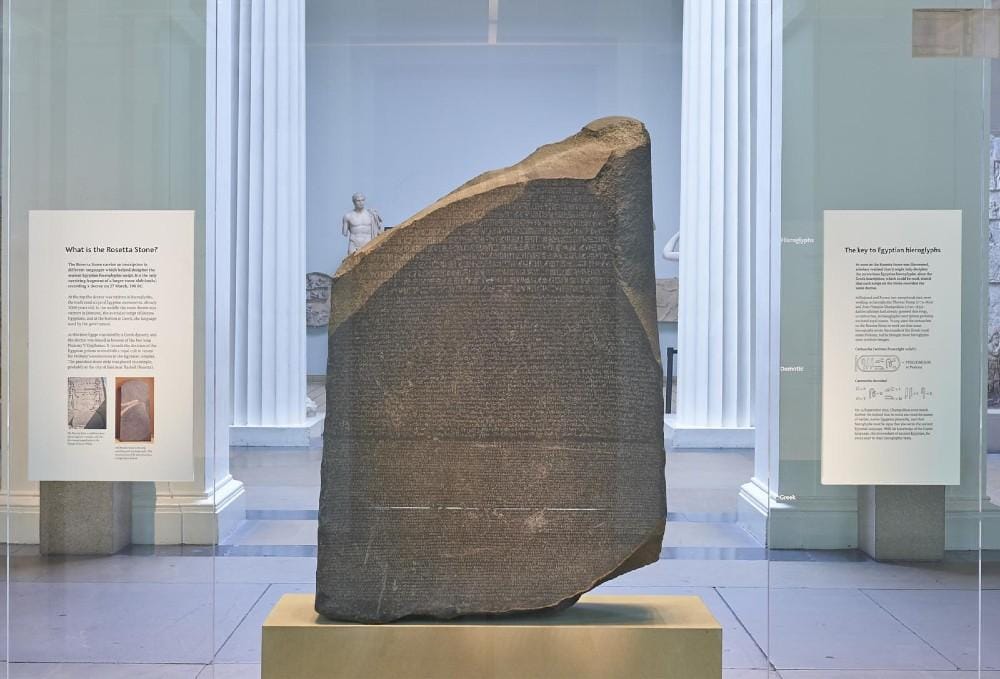Table of Contents

The Rosetta Stone is an ancient artifact discovered in 1799 in Rosetta, Egypt. It contains an inscription in three scripts: Greek, Egyptian hieroglyphs, and Egyptian demotic script. The text is a decree issued in 196 BC on behalf of King Ptolemy V. The stone was significant because it provided the key to deciphering Egyptian hieroglyphs. Jean-François Champollion, a French scholar, successfully deciphered the hieroglyphs in 1822 by comparing them with the known Greek text, unlocking the mysteries of ancient Egyptian civilization. Today, the Rosetta Stone is displayed in the British Museum in London.
Text
“The council and the priests and the people having resolved at the assembly, it seemed good to them to honours king Ptolemy, the ever-living, the beloved of Ptah, the god Epiphanes Eucharistos; for his piety towards the gods, and his beneficence towards his parents; and his love of his country; and his kind disposition towards the Senators and People of Alexandria; and his equity in regard to every part of Egypt; and his having restored the country of the Egyptians, when it was oppressed by the Syrians, and the Libyans, and the Kappadokians, and the Arabs, —tribes that had been destroyed of old by his father Ptolemy the ever-living, —and had settled there as guards of the country, after he had expelled the afore-mentioned nations, and those who were in the cities and the temples, and every rank of men and every family of distinction, every one of whom he restored to his place and his privileges.”
